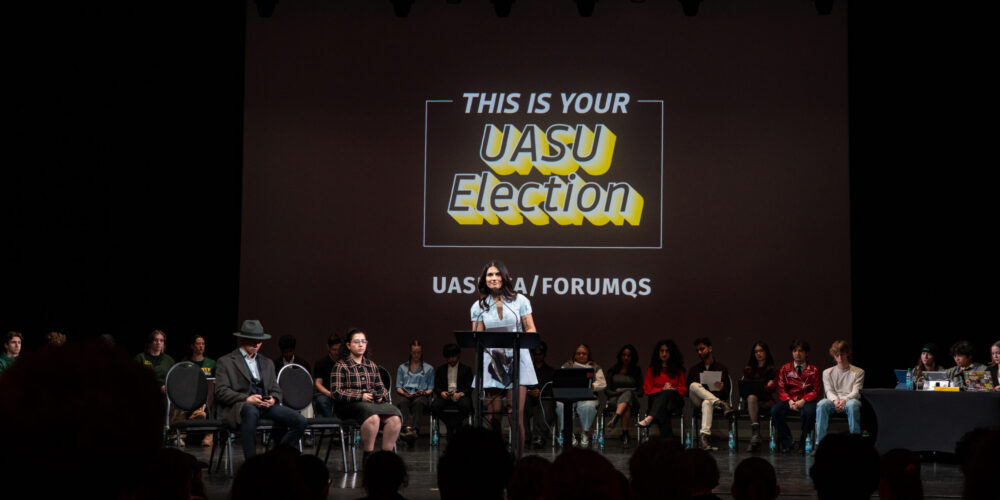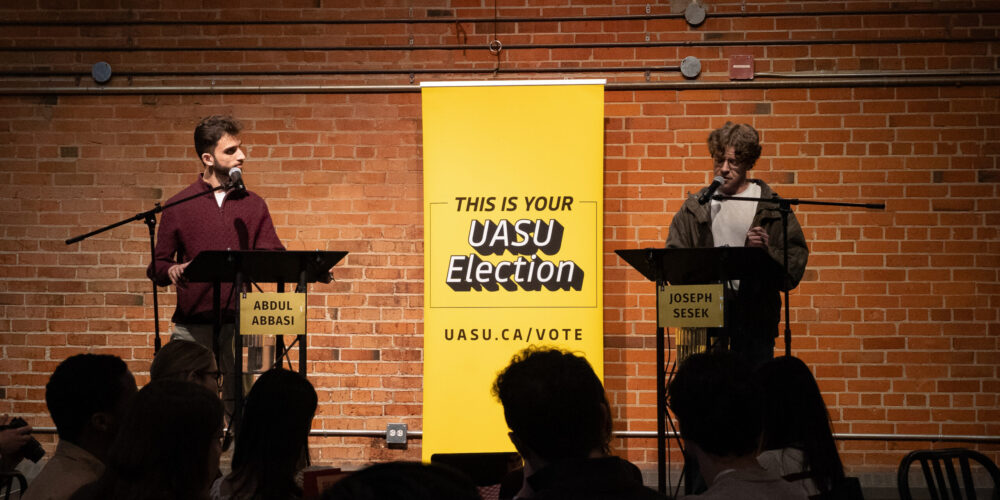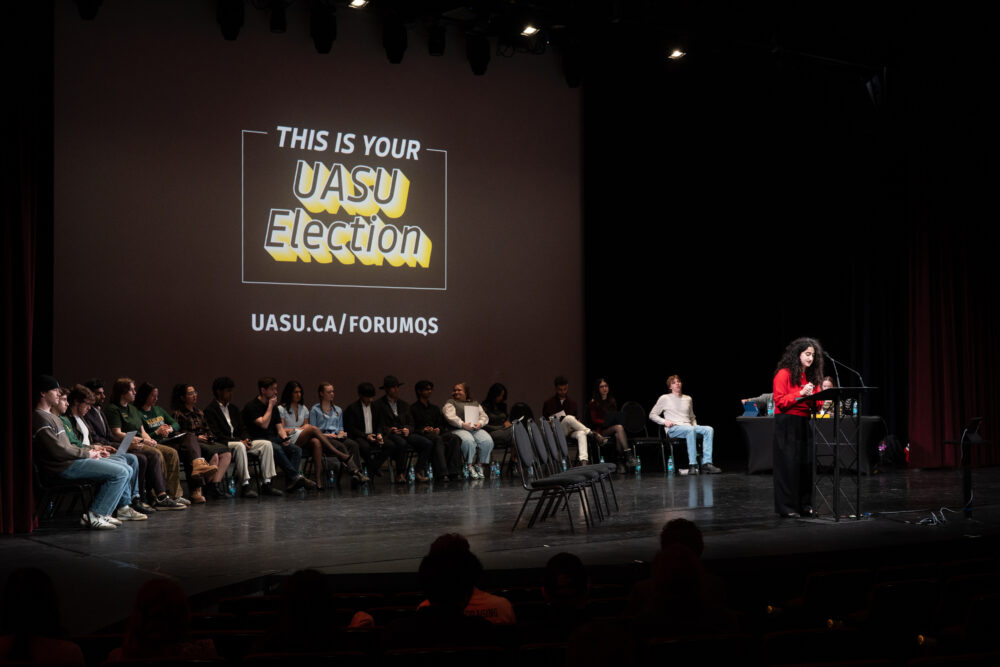Notes from Council: Navigating inclusive access, Stride Campaign School presented
"Challenge your campus to thoroughly examine the legal, financial, and ethical implications, of new models like inclusive access," SPARC Open Education Project Manager says.
 Helen Zhang
Helen Zhang“Notes from Council” is The Gateway’s ongoing series of recaps of noteworthy items from Students’ Council meetings.
At the University of Alberta Students’ Union (UASU) Students’ Council meeting on August 29, council received presentations from SPARC and Stride Campaign School.
SPARC presents on navigating inclusive access in light of proposed Academic Materials Program (AMP)
SPARC is a non-profit advocacy organization that supports open and equitable research and education systems. Hailey Babb, SPARC’s Open Education Project Manager, presented to council what navigating inclusive access can look like.
Under AMP, proposed by U of A Bookstore manager and vice-president (facilities and operations) Adam Medaglia, undergraduate students would be charged a flat fee for digital access to materials. The fee would be the same for all students, with the option to opt-out.
On June 28, Medaglia presented AMP to council. He said that the primary goal of AMP is to “increase equity among students by eliminating course material issues.” AMP falls under inclusive access, which Babb defined as “a textbook sales model that adds the cost of digital course content into students’ tuition and fees.”
“We actually don’t agree that these programs are inclusive or equitable,” Babb said. She explained that inclusive access is typically an agreement between bookstores and publishers, and more common in the United States (US). Babb added that students typically lose access to course materials after the course ends with inclusive access. However, with open educational resources (OER), access is free forever.
The flat-fee inclusive access model, which AMP is based on, is “an all or nothing situation,” Babb said.
“If you wanted to opt-out of that program, you would have to opt-out of everything. All faculty must participate. This is a campus-wide initiative and they don’t have the freedom to choose where their materials come from.”
“We do want to encourage you to think about how course materials are delivered here at the U of A,” Babb says
Babb provided ways that new models such as inclusive access can be challenged. She said that SPARC believes that refuting inclusive access saves money for students.
“You may be in a situation where your prices are less, but your students are effectively getting less with the short-term subscription. The savings from switching from print to digital are often moot because students typically can already choose a digital product.”
SPARC also believes that refuting inclusive access is equitable. Babb said that “savings on these programs are typically for students who would normally buy the expensive option anyway.” For the average student, inclusive access programs are “more than they would typically spend.”
“We have seen up to $600 to $780 [US dollar] per year charged to students in these programs. [In] Canadian, that is about $813 to $1,057 per year.”
Additionally, SPARC believes that refuting inclusive access offers options. Babb said that “there’s often a lot of things that make it difficult for students to choose to opt-out.” One reason for that is “homework is almost always included in the platform.”
“We’re not here to tell you whether or not to engage in this. We do want to encourage you to think about how course materials are delivered here at the U of A,” Babb said.
“Be proactive. Make sure that your administration, faculty, and students are aware of the impact of OER initiatives on your campus. We want you to ask questions. Challenge your campus to thoroughly examine the legal, financial, and ethical implications of new models like inclusive access.”
Stride Campaign School asks for support in promoting program
Stride Campaign School is a cohort program offered by the UASU under the Leadership Education and Development (LEAD) Centre. It encourages students of marginalized genders to become involved in student governance.
LEAD Centre Program Lead Nicole De Grano, LEAD Centre Student Development Coordinator Siri Nelson, and Learning and Development Specialist Daniela Carbajal presented to council, asking for support to increase student involvement.
“The program equips participants with the knowledge, skills, and network to run for a variety of student government positions,” De Grano said. She mentioned how the current UASU executive team is made up of all men.
“When our campus is 60 per cent identifying as marginalized genders, it’s a little bit jarring to see that your representatives are all men.”
Although people of marginalized genders are involved in student governance, it is usually in smaller positions, De Grano added.
“We don’t see them actively trying to run for big executive positions on campus. Often when they do try, they need that much more encouragement. They need that much more training and skill development because they don’t believe that they have the capacity or the ability to be able to sit in these seats. And I’m here to tell you all today that that is absolutely false.”
De Grano said Stride needs support because student involvement has not recovered to what it was before the COVID-19 pandemic. She asked council to promote Stride by spreading the word to students interested in governance and sharing content on social media.
Adrian Lam, the Augustana councillor, asked if they would be extending the program to Augustana Campus. Carbajal said she is currently working on developing training for Augustana.
“Maybe not specifically Stride. But there will be opportunities for students to get involved, get trained, and have those leadership opportunities.”




